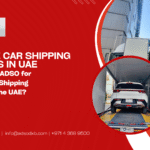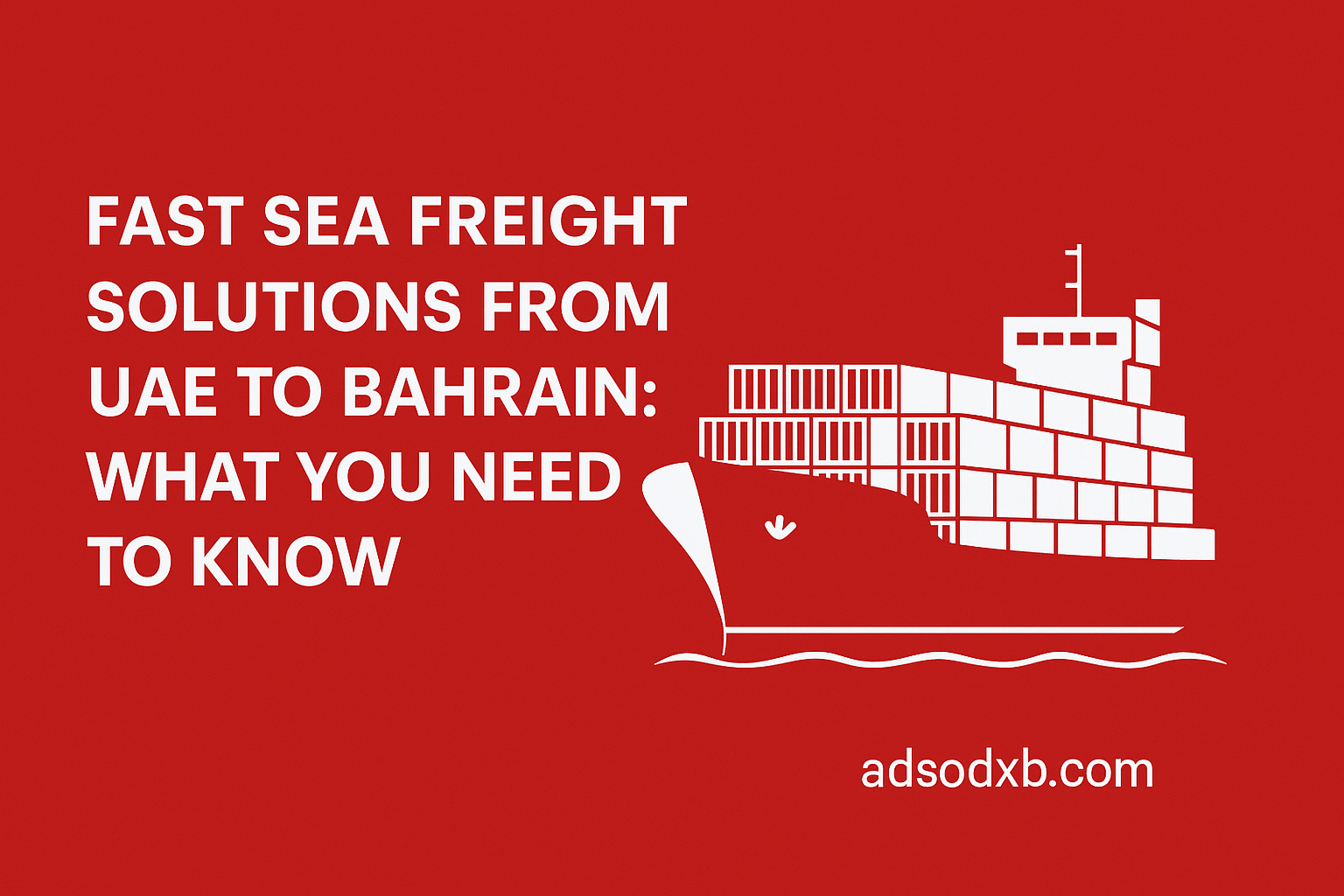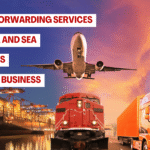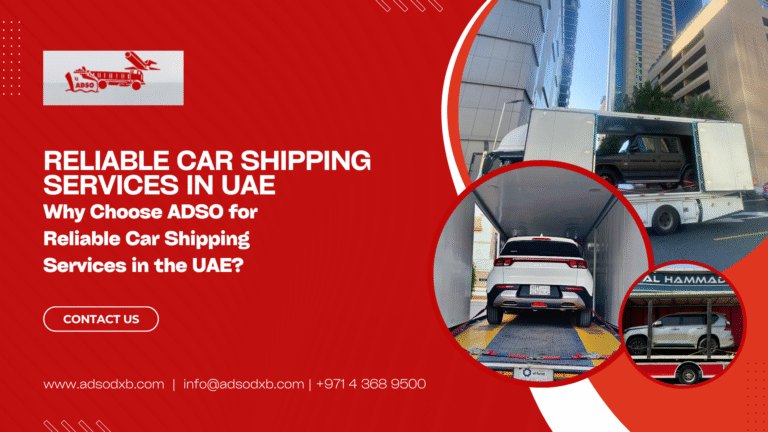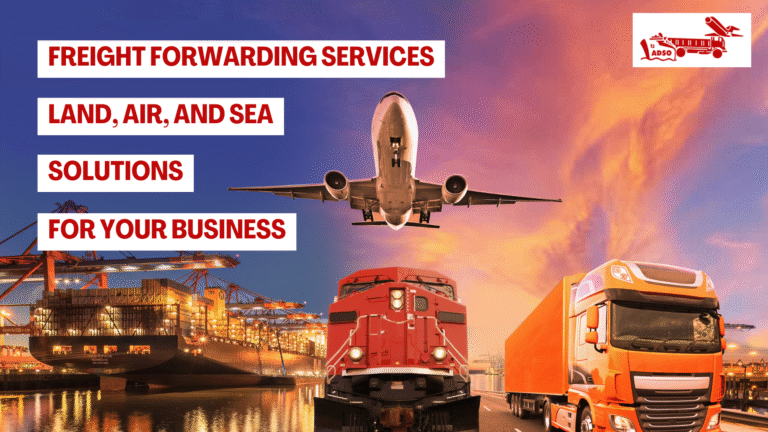Freight forwarding plays an important role in the global supply chain so that goods can move smoothly, through land, air, or sea, to their destination. Whether you are shipping oversized machinery, shipping time-sensitive documents, or dealing with huge bulk containers, these services will assist all types of shipments and help manage the process. This article will describe the significant types of freight forwarding – land, air, or sea – and how freight forwarding services help businesses or organizations of all sizes.
What is Freight Forwarding?
Freight forwarding is the organization and shipping of goods from one point to another using different carriers – land, air, and sea. All freight forwarders coordinate logistics, documentation, customs clearance, warehouse, and even insurance. Freight forwarders act as the intermediary between the shipper and transportation service providers. The main goal of these services is to facilitate the timely, safe, and cost-effective movement of goods and services. While it might look the same for local shipping or international shipping, it clears the path to simplify complex transportation needs for international deliveries. The service will continue to be essential for global trade and the development of e-commerce by allowing shipping options that do not cause unnecessary delays in the delivery process and affect cost savings.
ADSO__Providing Freight Forwarding Services from UAE to GCC Countries
ADSO is a worldwide freight forwarding company that has air, sea, land logistics capabilities. It primarily uses UAE as a transiting hub to connect cargo to Saudi Arabia, Kuwait, Bahrain, and Oman, utilizing 50 years’ of experience in this region as an advantage. Along with customs clearance, and project cargo, and a specialized transport provider, we target fully automated services with real-time tracking capabilities.
Land Freight Forwarding Services
Land freight is the best option if you need to ship domestically or cross-border by land using either truck . Scheduling can also be real-time, and door-to-door options are more beneficial for land freight. Land transport, specifically road transport, can easily transport goods to rural or urban destinations. Transporting by truck allows for flexibility and varying schedules. Because trucks are more versatile than other forms of transportation, land transport is often the cheapest form of freight forwarding. Shipping services must facilitate customs clearance at land borders as well. Land freight is often the preferred mode of shipping for energy, consumer products, raw materials, and industrial machinery, as it can support loads of all shapes and sizes.
Air Freight Forwarding Services
Air freight is the quickest available shipping option and ideal for shipping time-sensitive or high-value goods (i.e., electronics, documents, and medical supplies). Freight Forwarders coordinate with carriers/airlines to book cargo space and coordinate cargo packaging, tracking, and customs documentation. It provides global reach in mere hours or days. Typically, air freight will cost more than land or sea freight, but none can compete with the speed of air freight. It is well suited for e-commerce, technology, and pharmacy industries. Modern systems now have real-time satellite tracking options and enhanced security features. Freight forwarders assist businesses to meet tight deadlines by providing air logistics options.
Sea Freight Forwarding Services
Sea freight is suited for large, heavy, or bulk shipping loads. Sea freight is the most cost-effective way to ship goods internationally via water. Sea freight moves goods on cargo ships called container vessels, and shippers can utilize containers for long-distance transportation of goods. Freight forwarders coordinate with ocean carriers to book cargo space and load containers, prepare and process papers, and take care of customs and port service. Sea freight includes shipping for goods like construction supplies, textiles, chemicals, and machinery. Sea freight is slower than other options but the most cost-effective for international trade. Many businesses rely on sea freight to reach international or global markets. Sea freight allows shippers to use a full container load (FCL) when traveling or a less-than-container load (LCL) when shipping goods. Sea freight is necessary for sustainable, large-scale trade.
Why Businesses Need Freight Forwarding Services
Freight forwarders make a complicated logistics process easy. They provide an end-to-end service operation from pickup to delivery. Companies benefit from freight forwarders’ expertise and save time and money on logistics. They add additional value by helping companies avoid customs issues and lost and delayed shipments. They are knowledgeable about the world of domestic and international, ocean, air, and land border rules and documentation that must all be managed. They must engage with digital systems to track shipments and update inventory when it arrives. They may offer warehousing, insurance, and other services, as well as consulting about supply chain improvements to help companies scale globally. The service providers typically carry their liability insurance and have a ton of experience, thus decreasing the risk of goods being damaged or lost. A good freight forwarder creates the peace of mind that comes with any shipment.
Primary Advantages of Freight Forwarding
When you look at these services, there are many benefits. First and foremost are:
- Knowledge and expertise.
- Value.
- Transit time is usually faster.
- Errors in shipment are reduced.
Freight forwarders have the solution to optimize the route of shipping and cost. They generally utilize global networks together with well-trusted transport carriers. One that provides reliable, time-sensitive transport costs can help avoid overpaying for transport. Some or potentially all freight forwarders offer additional services that integrate into the freight service for a single price, which can include packaging, insurance, and tracking. They can also assist in providing risk management and alternative solutions when service disruptions are incurred or delays happen. All of these advantages give companies a competitive edge over competitors. Having strong and available delivery times through a reliable source of freight management adds value to any company and builds customer confidence and trust, which builds brand image.
How Technology is Shaping the Freight Forwarder of the Future
Technology has molded and shaped freight forwarding into what it is today. Today’s technology provides real-time tracking, digital documents, digitized bills, updated tariffs, and route optimization. Freight forwarding companies leveraging artificial intelligence will help you with demand forecasting and shipment planning. Internet-of-Things (IoT) sensors improve the evaluation of cargo temperature and location. Customs clearance is faster and easier due to electronic forms. Cloud storage systems provide common visibility for all business stakeholders and customers. Mobile apps allow you to be on top of (activity) and have an alert system 24 hours a day. Many companies are now utilizing digital dashboards to create reports. Technology in shipping has contributed greatly to the speed of the transactional cycle, the accuracy or errors made in freight, and promoting an overall positive customer experience. Global trade is transforming; technology has become a key factor in the choice of a shipment service.
Finding the Right Freight Forwarder for Your Shipment
The success of your supply chain and logistics actually relies on “the right” freight forwarder within your network. You will want to look for experience, routings, network coverage, and use of technology. The freight forwarder should be able to offer all three forms of transport- land, air, and sea. Along with experience and expanding networks, they should have strong local and global coverage. The team must be efficient and knowledgeable. When you have selected a forwarder name, you will want to ask about the following: are they resourceful enough to implement a tracking System; does their customer service team help you, especially in emergencies; can you expect them to go beyond freight, such as help with logistics consulting?
The best forwarder will have similar goals and values that align with your business. A great freight partner will demonstrate added value. Beyond moving freight, finding a freight partner that provides logistics consulting adds more value to your supply chain. A good forwarding partner will be resourceful and flexible and can be relied on to get you through your journey. Ultimately, identifying a trusted freight forwarder helps position your company for better long-term success in global trade.
Partner with ADSO for Trusted Freight Forwarding Solutions
ADSO is a trusted partner for land, air, and sea freight throughout the Middle East and beyond. Depending on whether you are shipping within the UAE, to Saudi Arabia, or anywhere in GCC countries, we will get it done accurately and efficiently. We understand the skill of freight shipment because we have decades of industry experience and up-to-date logistics systems and offer tailored solutions to meet your needs.
With fast air cargo, bulk sea freight, and land cross border options, there is no service ADSO freight forwarding company can’t take care of. From documentation done for you to customs clearance; open warehouse facilities; monitored tracking and tracing; ADSO is your freight forwarding partner. Let ADSO simplify your logistics transport. Contact us to provide smooth, smart & scalable shipping services.
FAQs
What services does ADSO offer?
ADSO provides air, sea, and land freight services, customs clearance, project cargo, etc.
What region does ADSO cover?
We provide services throughout the GCC region, including Saudi Arabia, Kuwait, Bahrain, Oman, and Qatar.
Does ADSO move oversized cargo?
Yes, we specialize in all-over-dimensional and heavy cargo movements using specialized transport trailers.

